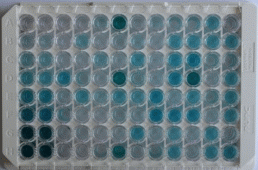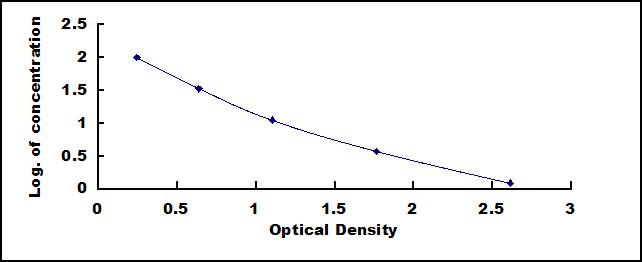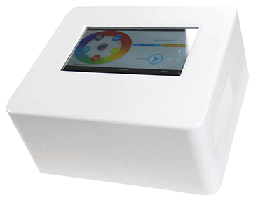Packages (Simulation)

Reagent Preparation

Image (I)
Image (II)
Certificate


Mini Samples ELISA Kit for Pepsin (PP)
- Product No.MEA632Mu
- Organism SpeciesMus musculus (Mouse) Same name, Different species.
- Sample Typeserum, plasma, tissue homogenates, cell lysates, cell culture supernates and other biological fluids
- Test MethodDouble-antibody Sandwich
- Assay Length3h
- Detection Range1.23-100ng/mL
- SensitivityThe minimum detectable dose of this kit is typically less than 0.51ng/mL.
- DownloadInstruction Manual
- UOM 48T96T 96T*5 96T*10 96T*100
- FOB
US$ 574
US$ 820
US$ 3690
US$ 6970
US$ 57400
For more details, please contact local distributors!
Specificity
This assay has high sensitivity and excellent specificity for detection of Mini Samples Pepsin (PP).
No significant cross-reactivity or interference between Mini Samples Pepsin (PP) and analogues was observed.
Recovery
Matrices listed below were spiked with certain level of recombinant Mini Samples Pepsin (PP) and the recovery rates were calculated by comparing the measured value to the expected amount of Mini Samples Pepsin (PP) in samples.
| Matrix | Recovery range (%) | Average(%) |
| serum(n=5) | 85-102 | 95 |
| EDTA plasma(n=5) | 91-101 | 96 |
| heparin plasma(n=5) | 85-101 | 89 |
Precision
Intra-assay Precision (Precision within an assay): 3 samples with low, middle and high level Mini Samples Pepsin (PP) were tested 20 times on one plate, respectively.
Inter-assay Precision (Precision between assays): 3 samples with low, middle and high level Mini Samples Pepsin (PP) were tested on 3 different plates, 8 replicates in each plate.
CV(%) = SD/meanX100
Intra-Assay: CV<10%
Inter-Assay: CV<12%
Linearity
The linearity of the kit was assayed by testing samples spiked with appropriate concentration of Mini Samples Pepsin (PP) and their serial dilutions. The results were demonstrated by the percentage of calculated concentration to the expected.
| Sample | 1:2 | 1:4 | 1:8 | 1:16 |
| serum(n=5) | 95-102% | 78-103% | 90-98% | 94-103% |
| EDTA plasma(n=5) | 90-104% | 78-102% | 82-101% | 91-99% |
| heparin plasma(n=5) | 95-102% | 86-105% | 80-93% | 91-104% |
Stability
The stability of kit is determined by the loss rate of activity. The loss rate of this kit is less than 5% within the expiration date under appropriate storage condition.
To minimize extra influence on the performance, operation procedures and lab conditions, especially room temperature, air humidity, incubator temperature should be strictly controlled. It is also strongly suggested that the whole assay is performed by the same operator from the beginning to the end.
Reagents and materials provided
| Reagents | Quantity | Reagents | Quantity |
| Pre-coated, ready to use 96-well strip plate | 1 | Plate sealer for 96 wells | 4 |
| Standard | 2 | Standard Diluent | 1×20mL |
| Detection Reagent A | 1×60µL | Assay Diluent A | 1×6mL |
| Detection Reagent B | 1×60µL | Assay Diluent B | 1×6mL |
| TMB Substrate | 1×4.5mL | Stop Solution | 1×3mL |
| Wash Buffer (30 × concentrate) | 1×10mL | Instruction manual | 1 |
Assay procedure summary
1. Prepare all reagents, samples and standards;
2. Add 25µL standard or sample to each well. Incubate 1 hour at 37°C;
3. Aspirate and add 25µL prepared Detection Reagent A. Incubate 1 hour at 37°C;
4. Aspirate and wash 3 times;
5. Add 25µL prepared Detection Reagent B. Incubate 30 minutes at 37°C;
6. Aspirate and wash 5 times;
7. Add 25µL Substrate Solution. Incubate 10-20 minutes at 37°C;
8. Add 20µL Stop Solution. Read at 450nm immediately.
GIVEAWAYS
INCREMENT SERVICES
| Magazine | Citations |
| Radiology and Oncology | LEVEL OF PEPSIN AND BILE ACIDS IN THE SALIVA OF PATIENTS WITH GLOTTIS T1 CARCINOMA Szd:Source |
| Radiology and Oncology | Higher levels of total pepsin and bile acids in the saliva as a possible risk factor for early laryngeal cancer Pubmed:Pmc4362607 |
| Clin Otolaryngol | Pepsin and bile acids in saliva in patients with laryngopharyngeal reflux – a prospective comparative study PubMed: 25516364 |
| journal of pediatric gastroenterology and nutrition | Does Positioning Affect Tracheal Aspiration of Gastric Content in Ventilated Infants? PubMed: 25313850 |
| Journal of Voice | Detecting Laryngopharyngeal Reflux by Immunohistochemistry of Pepsin in the Biopsies of Vocal Fold Leukoplakia pubmed:28756936 |
| Sensors (Basel) | Label-Free Detection of Salivary Pepsin Using Gold Nanoparticle/Polypyrrole Nanocoral Modified Screen-Printed Electrode Pubmed:29882917 |
| The Tohoku Journal of Experimental Medicine | Association between Pepsin in Bronchoalveolar Lavage Fluid and Prognosis of Chronic Fibrosing Interstitial Lung Disease |
| Respiratory Research | Pulmonary aspiration in preschool children with cystic fibrosis Pubmed: 30558606 |
| Tanaffos | Association of Bile Acid and Pepsin Micro-aspiration with Chronic Obstructive Pulmonary Disease Exacerbation Pubmed: 31423141 |
| Sensors | Optimization of Saliva Collection and Immunochromatographic Detection of Salivary Pepsin for Point-of-Care Testing of Laryngopharyngeal Reflux Pubmed: 31935973 |
| BIOSCIENCE REPORTS | Presence of pepsin in laryngeal tissue and saliva in benign and malignant neoplasms Pubmed: 33103719 |
| OTOLARYNGOLOGY-HEAD AND NECK SURGERY | Relationship Between Pepsin Expression and Dysplasia Grade in Patients With Vocal Cord Leukoplakia Pubmed: 32692278 |
| American Journal of Otolaryngology | Association of pepsin and DNA damage in laryngopharyngeal reflux-related vocal fold polyps Pubmed: 32889371 |
| The relationship between laryngopharyngeal reflux based on pepsin value and clinical characteristics of laryngeal cancer patients | |
| Med Sci Monit | The Role of Salivary Pepsin in the Diagnosis of Gastroesophageal Reflux Disease (GERD) Evaluated Using High-Resolution Manometry and 24-Hour?¡ 33220027 |
| Annals of Esophagus | Pepsin properties, structure, and its accurate measurement: a narrative review |
| Laryngoscope | The Impact of Laryngopharyngeal Reflux on Occurrence and Clinical Course of Recurrent Respiratory Papillomatosis 34338331 |
| Pulmonology | Bronchoalveolar lavage (BAL) amylase and pepsin levels as potential biomarkers of aspiration pneumonia Pubmed:35715334 |
| Neuromodulation: Technology at the Neural Interface | Transcutaneous Electrical Acustimulation Improved the Quality of Life in Patients With Diarrhea-Irritable Bowel Syndrome Pubmed:35088760 |
| Catalog No. | Related products for research use of Mus musculus (Mouse) Organism species | Applications (RESEARCH USE ONLY!) |
| MEA632Mu | Mini Samples ELISA Kit for Pepsin (PP) | Enzyme-linked immunosorbent assay for Antigen Detection. |
| CEA632Mu | ELISA Kit for Pepsin (PP) | Enzyme-linked immunosorbent assay for Antigen Detection. |
| LMA632Mu | Multiplex Assay Kit for Pepsin (PP) ,etc. by FLIA (Flow Luminescence Immunoassay) | FLIA Kit for Antigen Detection. |
| KSA632Mu11 | ELISA Kit DIY Materials for Pepsin (PP) | Main materials for "Do It (ELISA Kit) Yourself". |








